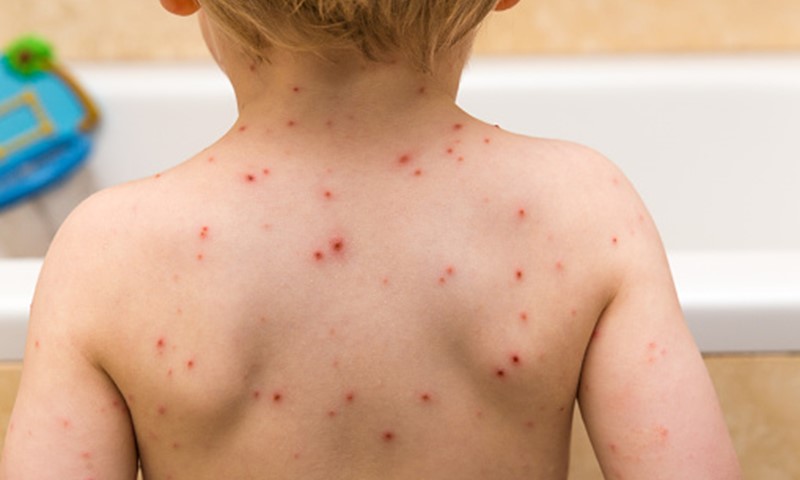Chickenpox vaccine should be given to children on NHS, Joint Committee on Vaccination and Immunisation say

Children should be offered a vaccine on the NHS to protect against chickenpox.
The Joint Committee on Vaccination and Immunisation (JCVI) has today recommended a universal varicella (chickenpox) vaccination programme should be introduced as part of the routine childhood schedule.
This should be a two-dose programme offering vaccination at 12 and 18 months of age using the combined MMRV (measles, mumps, rubella and varicella) vaccine.
Chickenpox is a highly contagious infectious disease caused by the varicella zoster virus.
Infection is characterised by the presence of an itchy, spotty rash with spots appearing then blistering and scabbing over.
Other symptoms that can appear before the rash develop can include a fever, muscle aches and pains and generally feeling unwell.
Chickenpox is often more serious in very young infants (under 4 weeks) and adults, in particular in pregnancy when it may cause complications in both the mother and the foetus, and in adults who are immunosuppressed.
According the JCVI a two-dose schedule is predicted to decrease the number of cases of varicella seen in childhood rapidly and dramatically.
The programme will prevent severe cases of varicella, and other serious complications of varicella, which while rare may have otherwise resulted in hospitalisation or other serious outcomes.
A catch-up programme should also be initiated following implementation of a programme to prevent a gap in immunity
Spotted something? Got a story? Email: [email protected]
Latest News
